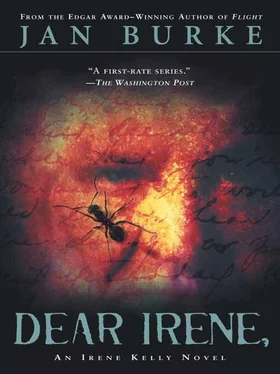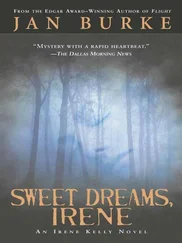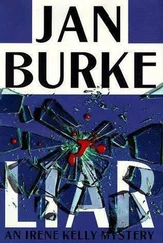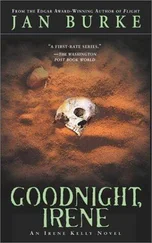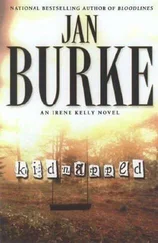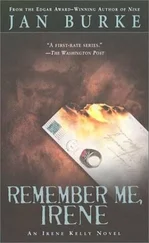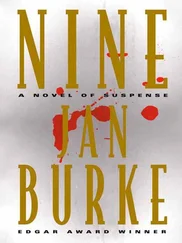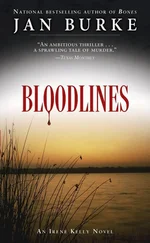“His wife didn’t want him to go,” I said, remembering the story. “Alcyone had a sense of foreboding about it, and begged him to stay home, or to take her with him. He was reluctant to be separated from her, but didn’t want to endanger her. He promised to return as quickly as possible and began his voyage.”
“He should have listened to her,” Jack said. “The very first night, the ship was caught in a heavy storm. All hands were lost. Ceyx was grateful that his wife would not share his fate, and died saying Alcyone’s name over and over.
“But Alcyone, not knowing what had happened, passed her days weaving a new robe for him, and thinking of how happy she would be when they were reunited. She prayed to the gods for his safety, and they took pity on her.”
“She prayed to Hera, the goddess of marriage, right?” I asked.
“Yes, but Ovid, being Roman, called her Juno. Juno was moved to intervene. She called on Morpheus to help her.”
“The god of dreams?” Frank asked.
“Yes,” I replied. “Morpheus could assume any form or shape. He changed himself into the shape of Ceyx – Ceyx as he appeared drowned. Weeping, he stood by Alcyone’s bed, and told her – in Ceyx’s voice – that he was her husband’s ghost, and asked her to mourn for him.”
“Alcyone cried out to him in her sleep,” Jack said, “and suddenly awakened, feeling certain that Ceyx was dead. She went to the shore at dawn, and as she watched in agony, saw Ceyx’s body floating toward her. She ran into the water, and suddenly, instead of sinking, she was flying over the sea. The gods changed Alcyone and Ceyx into birds – kingfishers – and they’re always seen flying or riding the waves together.”
“The term ‘halcyon days’ comes from their story,” I said. “According to the legend, for seven days in winter, the days when the kingfishers nest, the gods forbid storms to break, and the sea is peaceful.”
Frank reread the letter. “Nothing peaceful here.”
“He’s drowned someone,” I said. “A man, this time.”
“I’m afraid that’s what it looks like,” Jack agreed.
Frank got up and made some phone calls. When he was done, I called the Express; they contacted John Walters, who had just gone home for the night. One of the nightside reporters called me back and told me John expected me to come in the next morning, and took a story from me over the phone. Another story on the Thayer murder was already planned for the front page. The staffers in Design were unhappy about seeing their day’s work on the A section completely rearranged, but John didn’t want to delay the story of the third letter.
WE TOOK THE DOGS out and watched the activity on the beach from the top of the stairway at the end of our street. We could see searchlights from boat patrols out on the water; more lights as jeeps and foot patrols searched the beach, pier, and marina. I wondered, with a chill, if Thanatos was watching it all with glee. I moved closer to Frank.
We went home after an hour or so, both of us feeling worn down. I tried to get Cody to come out of the closet and got clawed for my efforts. The dogs gave up scratching at the bedroom door. I tried not to make too much of the fact that Frank checked his gun before we crawled into bed. I don’t know what time it was when we finally managed to fall asleep.
The phone rang at dawn. An unidentified man’s body had washed ashore.
We dragged ourselves out of bed. Frank tried to talk me into staying home, knowing something about what bodies look like when the ocean has had a little time with them. I reminded him that even though I didn’t always like to talk about corpses, I’d seen my share of gruesome sights in my years of reporting. That probably didn’t sway him as much as my admission that I didn’t want to be left alone in the house.
We walked in silence to the end of the street and took the stairs down to the sand. A police department jeep met us there, and drove us to an area on the beach which had already been cordoned off and shielded from the stares of curious early morning joggers.
The trick in these situations is to not identify the object on the sand as another human being. The trick, I told myself, is to distance yourself, observe, and not think about this waterlogged casing as a person, and certainly not anything at all like yourself. If you start to think about who it might have been or about your own vulnerability to death, you’ll probably pass out or get sick or both.
So I used the trick. I noted the fancy yachting shoes and the Rolex and the neatly trimmed hair. Absolutely refused to let my glance settle for more than a brief moment on what was once the face. The thing on the beach wasn’t in as awful a condition as “floaters” usually are, leading the county coroner, Dr. Carlos Hernandez, to say the body probably hadn’t been in the water more than a few hours.
THAT SUNDAY’S EDITION of the paper was printed before the body was found, but a story on the third letter and an interpretation of its meaning ran on the front page. The Express got phone calls all morning from women who were frantic about their missing husbands, but it wasn’t until about nine o’clock that I picked up the one that I knew was Alcyone.
Her voice was shaky, and she started by saying, “My name is Rita Havens. I’ve been reading your articles, Miss Kelly. I think-” She took a deep breath and started over. “My husband, Alexander Havens, went sailing to Catalina Island yesterday. He’s fifty-four years old.” That made the hair stand up on the back of my neck. But it was as she whispered her next statement that I became convinced that she should get in touch with the police.
“His mother used to work at Mercury Aircraft. Have they found Ceyx?”
RITA HAVENS’ CALL to the Express had resulted in negotiations that came just short of requiring a U.N. Resolution. When I went into John’s office and told him about her call, he got in touch with Frank, but didn’t give out any names or addresses. Frank handed it over to Lieutenant Carlson, saying he couldn’t do otherwise.
Carlson, in turn, went bananas. When he started making threats, John hung up the phone, then called Carlson’s boss, Captain Bredloe. Bredloe, fortunately, saw the wisdom of seeking the help rather than the ire of the paper. He promised to get back to John within the hour.
Meanwhile, my own situation at the Express wasn’t exactly comfortable. Rita Havens insisted I was the only reporter she would talk to, but the Express was wary of putting me on a story involving the cops. John only gave in when it looked as if he wouldn’t get an interview with her any other way.
Bredloe called back as promised. In the interest of finding the killer as soon as possible, he was encouraging a more cooperative spirit. He told us he had “worked with Lieutenant Carlson” on “better defining a team for this set of cases.” Frank and Pete were to act as liaisons with the paper, and he asked that we forward any leads we received to them. Mark Baker was free to talk to any of the detectives assigned to the case, but Bredloe made it clear that the detectives would continue to use discretion regarding what information they released to the paper. No detective would release information which might jeopardize the apprehension or prosecution of the murderer. I could tell that John wasn’t happy about the possibility of Frank working with me, but he could hardly complain, since Bredloe was basically giving him what he wanted, and getting Carlson off his back at the same time.
I CALLED RITA Havens to talk about Frank and Pete joining me when I came to see her.
There was a long silence, then she said, “So you are quite sure it’s Alex.”
Читать дальше
